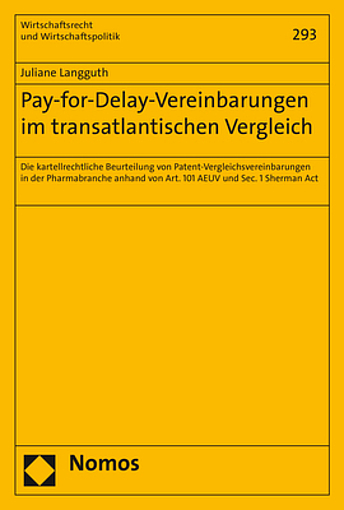englischDue to patent protection of an original product, original and generic manufacturers are frequently in dispute about the time a generic product should enter the market. To resolve this issue, companies reach patent settlements, including a value transfer from the original manufacturer to the generic company. In return, the generic manufacturer ensures that the launch of the product in question is delayed. These settlements are called pay-for-delay settlements.
This thesis investigates the compatibility of such patent settlements with European antitrust law. Its starting point is the USA's legal system, which has a much longer history than that of the EU. The first European Commission decision only dates back to 2013, so this short period of time has left essential questions unresolved. Thus, there is no clear distinction between a legitimate settlement and an anticompetitive pay-for-delay settlement.
Bei der Frage bezüglich des Markteintritts eines Generikums ist der Zeitpunkt zwischen Original- und Generikaherstellern häufig strittig, da dem Markteintritt Patente des Originalpräparats entgegenstehen. In diesem Konflikt wurden nicht selten Vergleiche geschlossen, die einen Vermögenstransfer des Originalherstellers an den Generikahersteller enthielten. Im Gegenzug versicherte der Generikahersteller einen verspäteten Markteintritt. Diese Vergleiche nennt man Pay-for-Delay-Vereinbarungen.
Die Arbeit untersucht die Vereinbarkeit dieser Vergleiche mit dem europäischen Kartellrecht. Ausgangspunkt ist dabei die Rechtsprechung in den USA, die eine weit längere Historie aufzuweisen hat, als das innerhalb der EU seit der ersten Kommissionsentscheidung im Jahr 2013 der Fall ist. Diese kurze Zeitspanne hat Wesentliches bisher offen gelassen. So ist etwa eine klare Abgrenzung zwischen rechtmäßigem Vergleich und wettbewerbsbeschränkender Pay-for-Delay-Vereinbarung noch nicht erfolgt.


